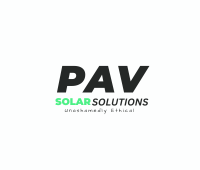Solar energy has emerged as a leading renewable energy source in the push towards a more sustainable future. With its abundance and availability, switching to solar energy has the potential to significantly reduce our dependence on fossil fuels and decrease our carbon footprint. However, like any energy source, there are environmental impacts associated with the production and use of solar energy. In this article, we will explore the environmental impact of switching to solar energy and how solar energy companies are working to mitigate these effects.
One of the major environmental benefits of solar energy is its ability to reduce greenhouse gas emissions. By harnessing the power of the sun to generate electricity, solar energy produces no emissions during operation, unlike traditional fossil fuels such as coal or natural gas. This reduction in greenhouse gas emissions helps to combat climate change and improve air quality, leading to overall environmental and public health benefits.
Another environmental impact of switching to solar energy is the land use required for solar panel installation. Solar panels are typically installed on rooftops, vacant land, or in solar farms. While this can lead to habitat disruption and land degradation, solar energy companies are working to reduce these impacts through responsible siting practices. By prioritizing the use of previously disturbed lands or integrating solar arrays with agriculture, companies can minimize the environmental footprint of solar energy installations.
In addition, the production of solar panels and other components can have environmental consequences. The manufacturing process for solar panels involves the use of materials such as silicon, glass, and metals, which can have negative impacts on the environment if not managed properly. However, solar energy companies are increasingly adopting sustainable practices, such as recycling programs and supply chain transparency, to minimize the environmental impact of solar panel production.
Furthermore, the disposal of solar panels at the end of their life cycle presents a challenge for the industry. While solar panels have a long lifespan of 25-30 years, they will eventually need to be replaced and recycled. Solar energy companies are investing in research and development to improve the recyclability of solar panels and develop new technologies for repurposing solar panel materials. By establishing take-back programs and partnering with recycling facilities, companies are working to address the issue of solar panel waste and minimize their environmental impact.
Overall, the environmental impact of switching to solar energy is largely positive, with the potential to reduce greenhouse gas emissions and promote sustainable energy development. While there are challenges associated with the production and disposal of solar panels, solar energy companies are taking steps to mitigate these impacts and improve the sustainability of solar energy systems. By continuing to invest in research and development, adopting sustainable practices, and engaging with stakeholders, solar energy companies can help to maximize the environmental benefits of switching to solar energy.
——————-
Discover more on Solar energy company contact us anytime:
HOME | PAV Solar Solutions | 106 Partridge Avenue, Allen Grove, Kempton Park, South Africa. Inverters, Batteries, Solar Panels, Mounting Equipment
https://www.pavsolar.co.za/
0735282308
Partridge Avenue 106,Allen Grove
Contact PAV Solar Solutions For All Your Solar Equipment And Installations.
Ready to take your energy savings to the next level? Look no further than PAV Solar Solutions. Discover how our innovative solar solutions can help you harness the power of the sun and slash your electricity bills. Visit our website now to learn more.

